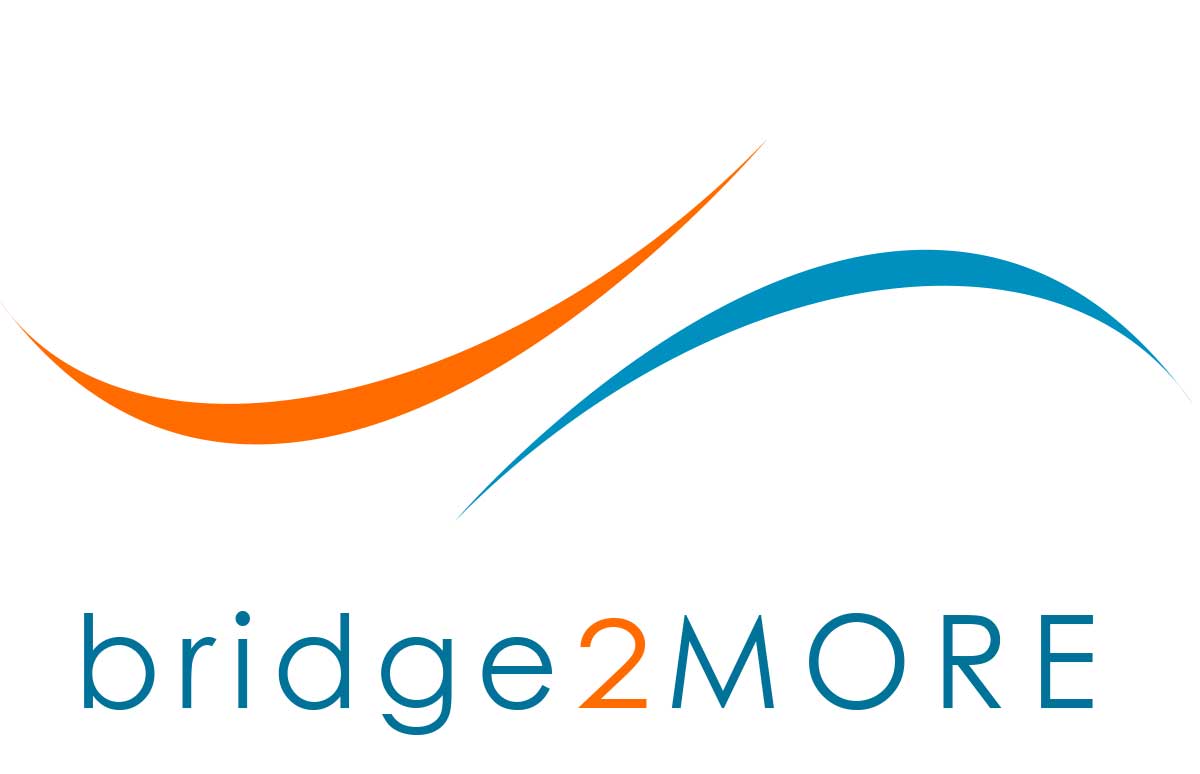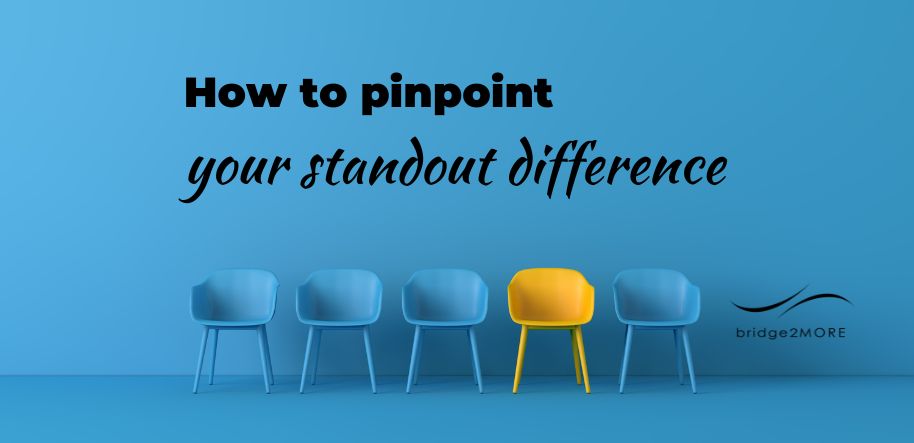Find out what makes you different in the eyes of your potential clients with these simple steps to stand out.
Small businesses often face competition from larger companies with more significant marketing budgets and resources. It is crucial that you clearly convey in your communications how you are different from other businesses selling similar services/solutions so that they can understand why working with you is a logical choice for them.
Understanding the importance of a standout difference
Before we dive into the nitty-gritty, let’s first understand why having a unique difference is so vital.
A standout- difference, also known as a unique selling point or value proposition, It’s the unique value you bring to the table that your competitors can’t replicate. By identifying your standout difference, you can effectively communicate to your customers why they should choose you over your competition.
It’s the difference between “We are an accounting firm” and “We help small businesses to save on taxes and other business expenses, without sacrificing the quality of our service”:-)
Advantages of having a clear standout difference
From a marketing perspective, having a clear standout difference offers several significant benefits for a business. Let’s explore some of the key advantages:
- Fewer competitors to be compared with: Your standout difference sets you apart from your competitors and makes you memorable for your target audience.
- Premium Pricing Potential: If your standout difference adds significant value or solves a specific problem for consumers, you may have the opportunity to position your products or services at a premium price point. Customers are often willing to pay more for something they perceive as unique and superior.
- Word-of-Mouth Marketing: A clear standout difference generates buzz and excitement around your brand. Satisfied customers are more likely to share their positive experiences with others, leading to organic word-of-mouth marketing, which is highly valuable for business growth.
- Media and PR Opportunities: Journalists and media outlets are more likely to cover stories about companies with unique and compelling standout differences. Having a captivating brand story can lead to more media coverage and PR opportunities, increasing your brand’s visibility.
“If your customer cannot differentiate between you and your competitor,
they will make a choice based on price and not on value.”
Have you ever tried to think of what sets you apart but couldn’t figure it out?
You are not alone! Most small businesses have trouble seeing their strengths & weaknesses in a loving light.
Also, we tend to overlook the things that are normal for us, but not for the rest.
For instance, I speak 5 languages, and I have lived & worked in over 7 countries. My mom spoke 7 languages and my dad 5, so speaking more than 3 languages for any family member is nothing extraordinary. I rarely talk about that. But my clients appreciate the added value of my international experience & speaking several languages.
Anyway, back to figuring out what sets us apart.
When we are forced to think about what makes us different, we may have some of these reactions:
- A weird form of writer’s block takes over, and suddenly you can’t think of any skill
- Nothing seems “good enough” to be included in your elevator speech or in your compelling marketing message.
- Or you disregard a good idea because “you have to offer something completely new and innovative than the competition.” (hint: not true!)
Ask the people
To overcome self-confidence killers and discover what makes you different, ask people you trust to share their feedback with you.
That’s it.
This will help you pinpoint the thing that makes your small business truly different from the pack and create compelling testimonials and marketing messages.
For this, you can interview some of your favorite clients.
What to ask
Some questions to ask them:
- What was the biggest challenge you faced when you chose to hire me?
- Why did you choose to work with me?
- How would you describe the experience of working with me?
- What would you say makes my work special or different from others?
- What words come to mind when you think about your experience working with me?
While to friends and (former) colleagues, you can ask questions along these lines:
- What do you think I’m GREAT at?
- In what situations do you think I operate at my highest level?
- What do you see as something that sets me apart from others?
Asking your friends, clients, colleagues, and others who can see your standout difference might make you feel self-conscious.
Get over it.
People who have benefited from your services, skills, insights, or experience will surely be willing to provide candid and useful feedback.
The standout difference my clients refer to most frequently is that I know how to help them achieve what they want without overwhelming them with complicated marketing or cumbersome tactics. I listen to what they wish to see happening and what they aren’t saying and propose services/strategies that align with who they are and their objectives.
Initially, I had a different idea for the services and skills I considered showcasing as my unique difference. But following the steps described above, my clients, friends, and relations showed me the right path.
I encourage you to reach out to your relations and find out what they have to say.
Communicating your Standout difference effectively
The next step is to incorporate what makes you unique in your marketing
It’s crucial to effectively communicate your difference to your target audience. Make sure your messaging is clear, concise, and resonates with your target audience’s pain points and preferences. Use your difference as the foundation for all of your marketing materials, and be consistent in your messaging across all channels.
Take a look at your bio and your website. Do they highlight your unique gifts?
You’ll be surprised to see the results you get!

By pinpointing your standout difference, you can effectively differentiate yourself from the competition and appeal to your target audience’s pain points and preferences.
Start by seeking feedback from others, embracing your unique qualities, and crafting a unique selling proposition that sets you apart. By consistently communicating your difference across all channels, you’ll elevate your brand and stand out from the crowd.




